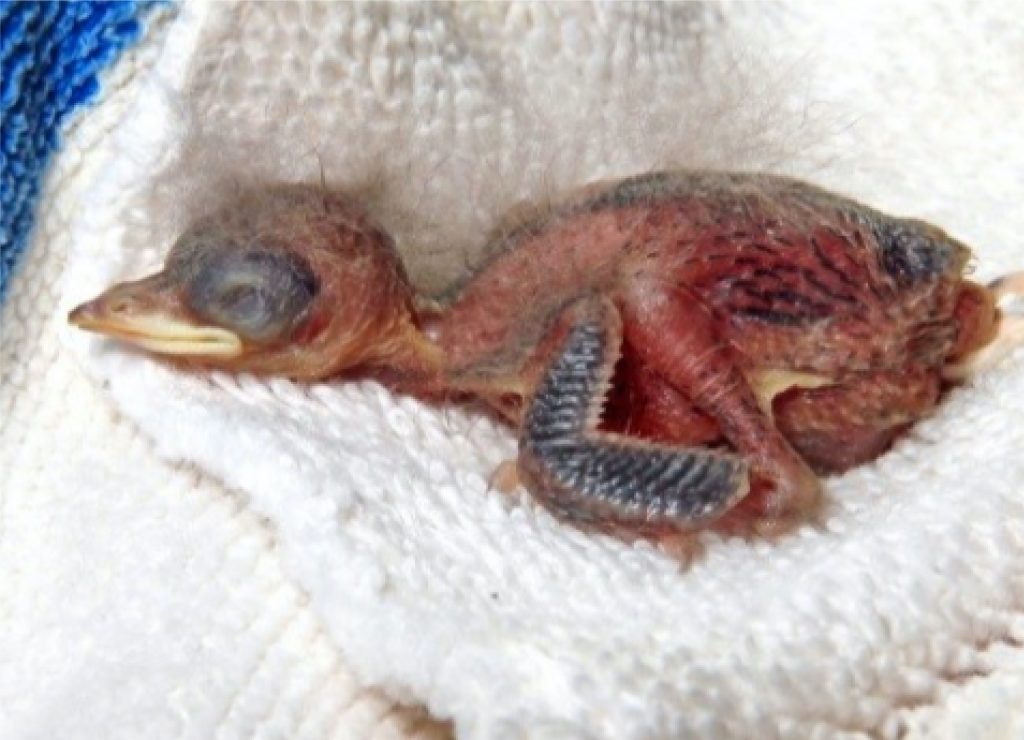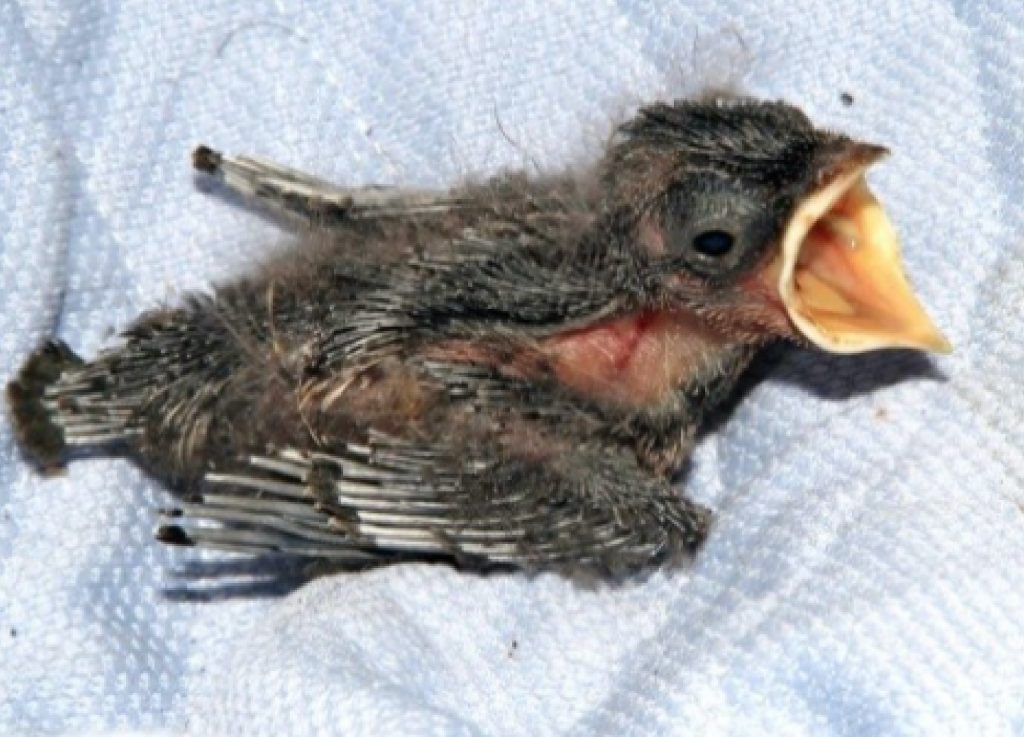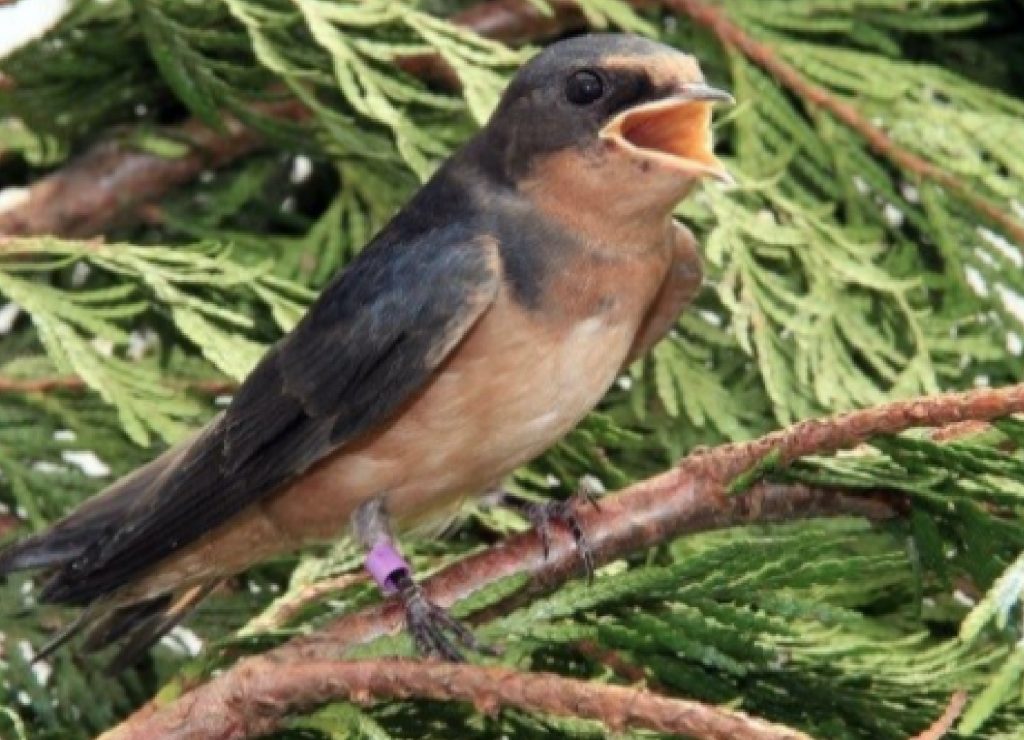Support Us
Since 1979 more than 140,000 animals have been treated by Wildlife Rescue.
Thanks to the support of individuals like you, Wildlife Rescue can provide a lifeline for animals in distress.
So you’ve found a baby bird… now what?
Is the bird hurt? Are there any visible injuries or blood? Is it cold, weak or lethargic? Has it been attacked by a predator? If so, call our Support Centre immediately at (604) 526-7275 for directions on how to safely bring the bird in.
If it is not obviously injured, assessing the age of the bird can help determine the next steps.

Hatchlings are birds that have very recently hatched. Their eyes are not yet open, and they have has few or no feathers. They are completely defenceless and entirely dependant on their parents for care.

Nestlings have their eyes open, have a few feathers growing in tubes, or downy feathers. They are not yet standing or hopping and should still be in their nest.
If so, carefully return the bird to its nest and watch from a distance for the parents to return. Remember to keep back so the parents don’t see you (humans are predators too!).
If you can’t find a nest, build a make-shift nest from a basket and dried grass and carefully secure it in the original tree. Again, watch for the parents to return from a distance.
If the parents don’t return within 4-hours, give our Support Centre a call for guidance.

Fledglings are fully feathered, but their tails are wings are short. They may still have their “lips” (gape flanges). They may be awkwardly hopping and fluttering on the ground.
If so, herd it carefully to a shrub or tree nearby. Keep any pets indoors or away from that area for a few days.
If no, do NOT intervene! Though it looks awkward, it’s a natural step in the bird’s development. The bird needs time and space to learn how to fly! The parents are still watching it from close by.
You can download a PDF of this info here to share.